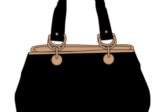Psychology Of Clothes: Our Appearance Can Change Who We Are

The clothes we wear have the power to influence our thoughts, emotions, and behaviors.
Our clothing choices can shape and even change our self-perception.
In this article, we delve into the psychology of clothes.
Discover how the clothes we wear can impact our confidence, mood, and overall well-being, and learn how to harness the potential of fashion to empower yourself and express your authentic self.
Our attire can shape our self-confidence
Dressing well can make a huge difference in how others perceive you and how you feel about yourself.
Enclothed cognition means that the clothes we wear impact our cognitive processes, influencing our thoughts, attitudes, and behavior.
For instance, wearing a luxury watch speaks volumes of who you are, boosting your self-confidence.
When we wear specific outfits and accessories associated with certain traits or roles, we unconsciously activate corresponding psychological attributes.
When we wear clothes that align with our desired identity or evoke positive associations, we tend to experience an uplift in self-esteem.
For example, wearing a doctor’s white coat can enhance attention to detail and promote professionalism.
Clothing as a form of self-expression
Fashion serves as a powerful medium for self-expression, allowing us to communicate aspects of our personality, interests, and values to the world.
Additionally, incorporating Christian apparel into your wardrobe can serve as a meaningful expression of faith and identity.
By expressing our unique tastes, interests, and values through clothing, we create a more authentic and fulfilling experience of self.
By carefully selecting our attire, we can align our external appearance with our internal self, projecting an authentic and cohesive image to the world.
Our clothes shape social interactions
Our attire serves as a visual language, communicating messages to others about our social status, personality traits, and cultural affiliations.
Clothing acts as a symbolic cue that shapes how people perceive and interact with us.
The clothes we choose to wear send signals to others, conveying information about our social, cultural, and individual identities.
For instance, wearing formal business attire may elicit respect and convey competence in professional settings. By strategically selecting our clothing, we can actively influence the impressions we make and the dynamics of our social interactions.
The influence of clothing on mood and emotions
It’s no secret that our clothing choices can significantly impact our moods and emotions.
Studies show that colour is a powerful communication tool and can be used to signal action, influence mood, and even influence physiological reactions.
For example, vibrant and bold colors like red can promote feelings of power and assertiveness, while softer pastel tones may evoke a sense of calmness and tranquility.
Additionally, wearing clothes that reflect our personal preferences and make us feel good can enhance our overall mood and well-being.
Cultivating a mindful approach to dressing
To ensure that we are wearing clothes rather than letting them “wear” us, it is important to cultivate a mindful and intentional approach to dressing.
This involves understanding our personal style, knowing what makes you feel your best, and making conscious choices about the clothes we wear.
By doing so, we can develop a healthy relationship with fashion that empowers us and allows us to fully express ourselves.
Summary
The psychology of clothes demonstrates that our appearance extends far beyond aesthetics.
Our clothing choices can shape our thoughts, behaviors, and sense of self.
By recognizing the influence of clothing on our cognition, social interactions, and emotional expression, we can harness its power to transform our lives.
Embrace the psychology of clothes, and let your appearance become a catalyst for positive change and self-transformation.




